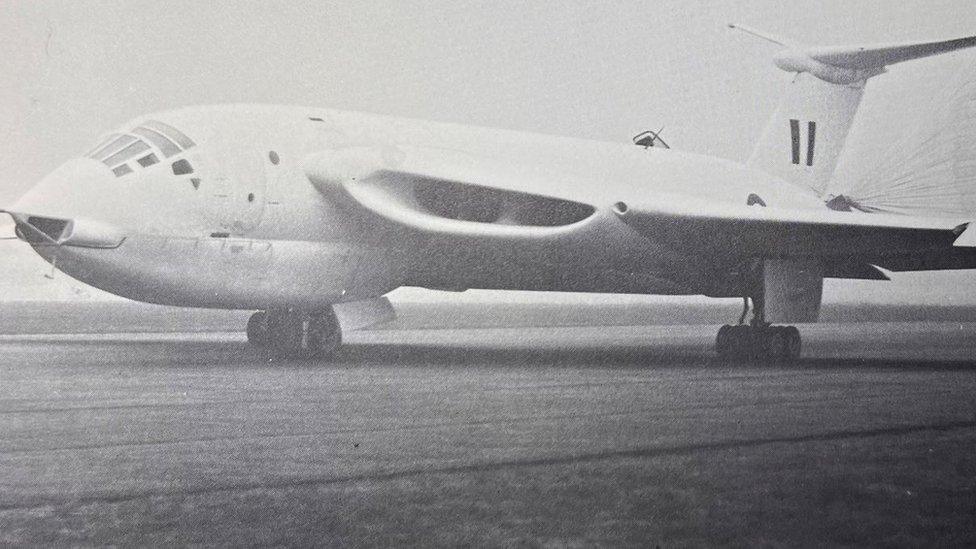Operation Victor Search: Dad, his missing plane and the Mourne fishermen
- Published
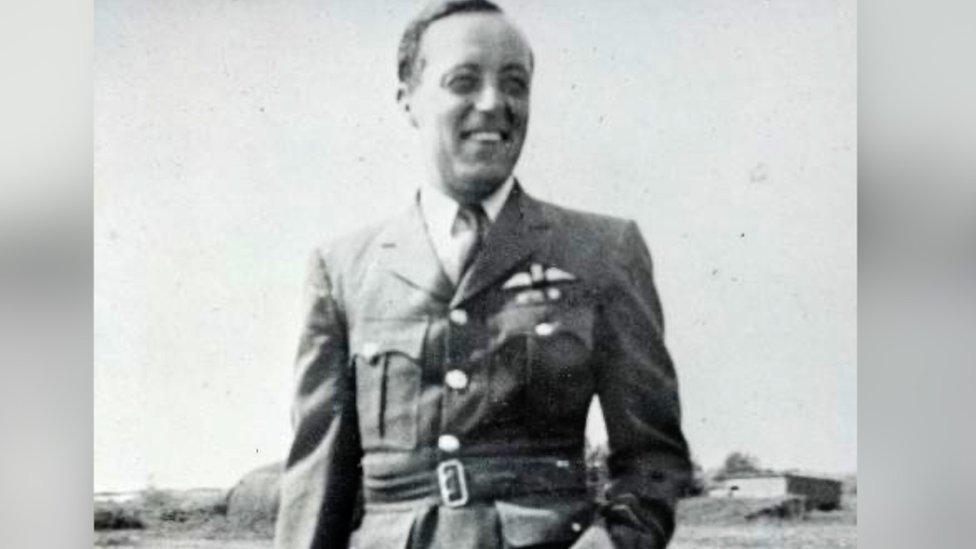
Squadron Leader RJ Morgan was the pilot of a military plane that crashed into the Irish Sea on 20 August 1959
"I think when there's a bit of a mystery like this, it constantly haunts you."
More than 60 years on, Elizabeth Morgan is seeking further information on her father's death.
Squadron Leader Raymond Morgan was the pilot of a military plane that crashed into the Irish Sea on 20 August 1959.
His body, along with the remains of four other crew members, was never found.
A secret salvage mission for the wreck would be launched, including the recruitment of boats from Northern Ireland.
The flight itself was a final test for the prototype of a Handley Page Victor British bomber.
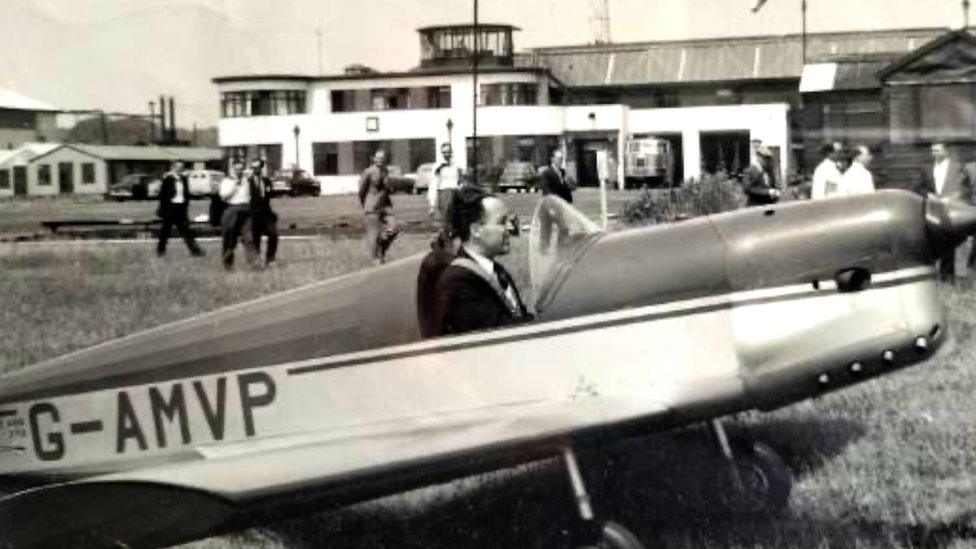
Squadron Leader RJ Morgan joined the RAF after university
In the midst of the Cold War, the military operation was shrouded in secrecy and the Morgan family were given little details about what happened.
"We lived in Cheshire, I was only three years old when my father died so don't remember much, but even when I went looking for details in later life, there was nothing out there," Elizabeth said.
Elizabeth thought the door had closed to any new details about her father's case coming out
After initially requesting the official report of the incident from the Ministry of Defence several years ago, Elizabeth was told at the time they could not release any further information on her father's case.
She added: "Anything I've learnt about my father has been through family stories - he was very shy, retiring and modest.
"He didn't really talk about what he did in the RAF, it was all very secret right up until he died."
'It came out of the blue'
Now 67 years old and living back in her childhood home of Cheshire, Elizabeth thought the door had closed to any new details about her father's case coming out.
That was until last month when BBC News NI reported on the little-known story of Operation Victor Search.
A group of Northern Ireland trawler men helped find parts of the plane including the pilot's watch
It shed new light on the role fishermen from Northern Ireland played in the secret salvage mission to find the missing plane.
More than 40 ships, including nine Mourne fishing trawlers, helped recover 70% of the plane, which had shattered into thousands of pieces upon impact.
Their fishing nets were used to dredge the seabed and recover parts of the plane and key clues around the cause of the crash.
Elizabeth said: "A few weeks ago, my son had been reading the BBC News website and he spotted the article on Operation Victor Search.
"He sent it onto me and I couldn't believe it. It just came out of the blue after all these years, details of a story involving my father that I hadn't heard before."
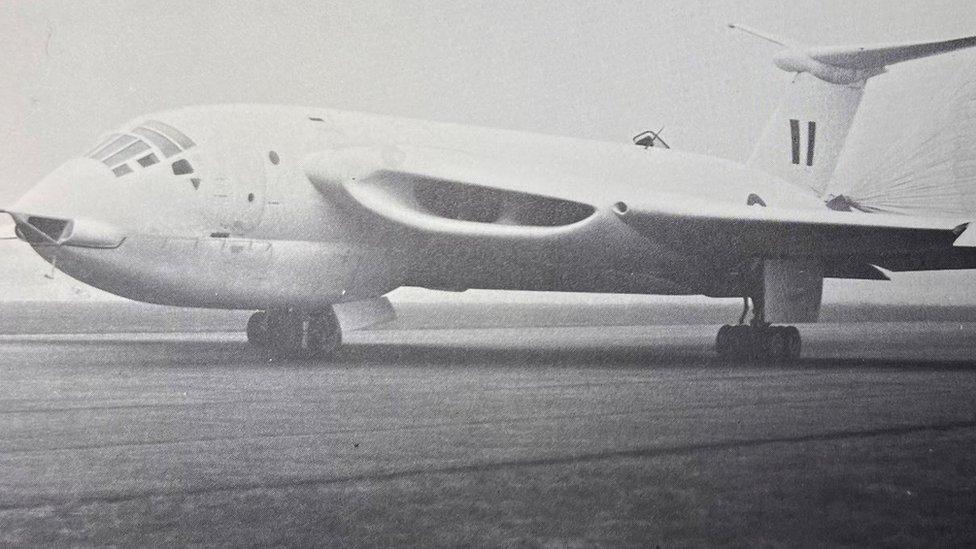
The plane disappeared during flight trials along with its five crew members
As part of the BBC News NI piece, one of the last surviving members of the Mourne crew, Sam McKibben, gave an interview.
His vessel, Green Pastures, had set the record for largest trawl in a single day, netting more than 7,000 fragments of the aircraft.
Elizabeth said it was an emotional experience hearing a first-hand account of what happened during the search for her father's plane.
She said: "It was just hearing that human connection more than 60 years on, this person who has this link to the aftermath of my father's accident and the important work they did.
"I found it quite moving actually and it has kind of triggered this flurry of activity for me delving back into the past."
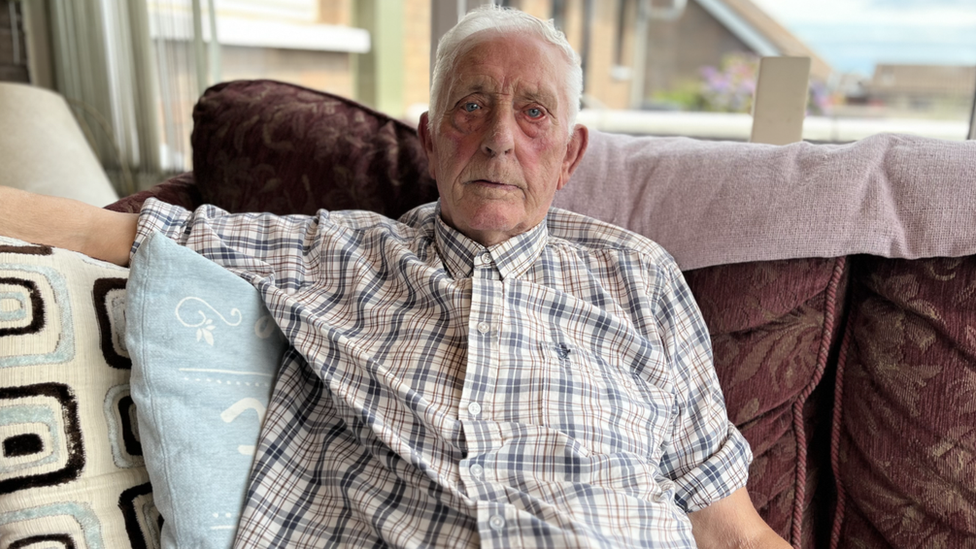
Sam McKibben was one of the youngest members of the Mourne crew involved in the salvage mission
The work by the Mourne fishermen and other vessels gave British authorities enough information to be reasonably satisfied about the cause of the plane accident.
It was concluded that only minor changes were needed to resolve the problem that caused the crash, allowing the bomber to enter service in February 1962.
There is very little about Operation Victor Search online; for detailed information you have to seek out hard copies of old books and archived newspaper cuttings.
In 1979, one the members of the English vessels involved in the search published a book of his account of the salvage mission.
In the summer of 1994, the Mourne Observer would run a serialised abridged version of the book, highlighting the role of the Mourne trawler men.
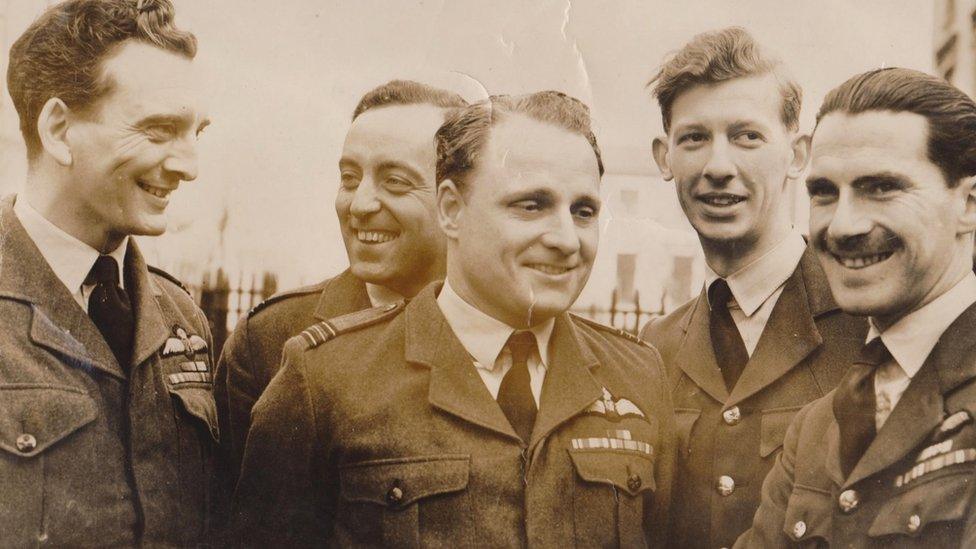
Squadron Leader RJ Morgan is pictured second on the left
But they all deal with circumstances surrounding the search and Elizabeth now wants to find out more about the events during and leading up to the crash involving her father.
New information
Elizabeth has recently written to the RAF to request the Board of Inquiry (BoI) and the casualty file for her father's plane crash. She has been informed that she should receive the documents next month.
She said: "Whether or not I'll ever get to hear the full story, I've no idea.
"For me it's just about anything I can do to help fill in all these enormous gaps about my father and what happened to him."
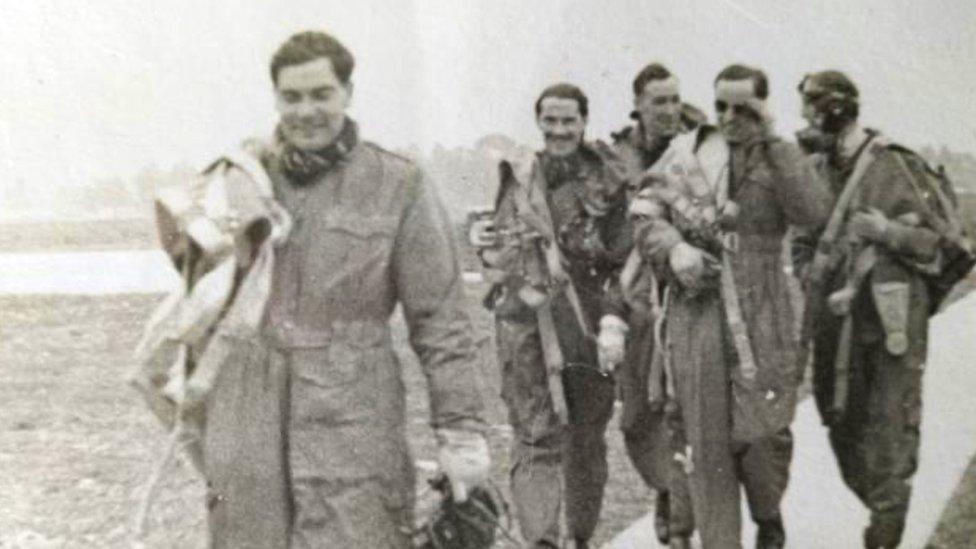
Squadron Leader RJ Morgan is pictured in the background with sunglasses
In the meantime, she is planning to take a trip to Northern Ireland to visit the area where the Mourne trawler men involved in the search came from.
She added: "It's strange to have this all come back into my life, and while it has brought up a lot of things, it's helping me ask questions I had never asked before."
- Published23 July 2023
